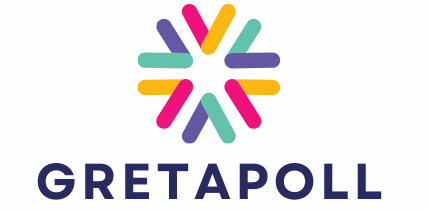Table of Contents
ToggleLaunching a tech startup is like trying to juggle flaming torches while riding a unicycle. It’s thrilling but requires careful planning—especially when it comes to budgeting. A well-structured budget can mean the difference between a successful launch and a spectacular crash landing.
Understanding a Tech Startup Budget
A well-prepared budget acts as a roadmap for a tech startup’s financial journey. Understanding its components and importance helps founders navigate challenges effectively.
Importance of Budgeting for Startups
Budgeting serves as a foundation for strategic decision-making in startups. It allows founders to allocate resources efficiently, minimizing waste during product development. A realistic budget provides clarity on cash flow, ensuring sufficient funds for operational costs. Tracking expenses against the budget helps identify spending patterns and potential financial pitfalls. Stakeholders, including investors, often review budgets to assess viability, making a compelling budget vital for securing funding.
Key Components of a Startup Budget
Several essential components make up a robust startup budget. Initial expenses include legal fees, registration costs, and technology investments. Operational costs cover salaries, rent, utilities, and marketing efforts. Revenue projections outline anticipated income streams, allowing for realistic growth expectations. Regularly reviewing and adjusting the budget ensures alignment with business goals and market realities. Tracking unforeseen expenses helps maintain adaptability, essential in a dynamic tech landscape.
Creating a Tech Startup Budget Example
Developing a tech startup budget requires careful attention to specific financial categories. Founders should focus on initial costs and ongoing operational expenses to ensure financial health.
Initial Costs to Consider
Initial costs play a critical role in launching a tech startup. Legal fees typically include registration, trademarks, and contracts, which can range from $1,000 to $5,000. Technology investments involve purchasing hardware, software licenses, and development tools, potentially costing $10,000 to $50,000. Marketing expenditures for brand development or promotional campaigns may start at $5,000. Office space, whether a lease or co-working space, incurs additional costs, often between $500 to $2,500 monthly. Ultimately, having a clear understanding of these initial expenses helps founders allocate resources effectively.
Ongoing Operational Expenses
Ongoing operational expenses sustain a tech startup’s growth. Salaries for employees represent the largest ongoing cost, usually amounting to 40% to 60% of monthly budgets. Marketing efforts must continue, requiring allocations ranging from 10% to 20% of revenue. Software subscriptions and maintenance fees contribute further, typically costing $500 to $2,000 monthly. Rent and utilities for office space add another layer of monthly financial commitment, which may vary from $1,000 to $5,000. Tracking these ongoing expenses ensures startups maintain operational stability while striving for growth.
Tips for Managing Your Startup Budget
Effective budget management is crucial for the success of a tech startup. Founders can implement several strategies to ensure financial stability.
Tracking Income and Expenses
Maintaining detailed records of income and expenses fosters financial awareness. Utilizing accounting software simplifies tracking, enabling quick access to real-time data. Founders should categorize transactions to clearly see spending patterns. Monthly reviews of these records help identify areas for cost-cutting and opportunities for growth. When accounting for legal fees and technology investments, precise documentation reduces the risk of overspending. Regular updates ensure alignment with overall business goals.
Evaluating Budget Forecasts
Evaluating budget forecasts helps startups prepare for future financial states. Comparing actual results against projections highlights discrepancies. Founders should analyze these variances to understand their causes, whether due to underperformance or overspending. Reassessing revenue projections, particularly after launching marketing campaigns, ensures realistic growth expectations. Scenario planning allows founders to adjust budgets based on market fluctuations. Making informed decisions during these evaluations strengthens financial resilience and supports strategic planning.
Real-World Tech Startup Budget Examples
Tech startups serve as valuable examples, demonstrating effective budgeting in various scenarios. Understanding these examples can guide new founders in structuring their budgets.
Successful Startup Budget Case Studies
Acme Tech successfully launched with a budget breakdown of $150,000. Initial expenses included $3,500 for legal fees and $25,000 allocated to technology development. Marketing costs were set at $10,000, ensuring brand visibility. Operationally, employee salaries accounted for 50% of monthly expenditures, allowing for a competitive team. In the first year, Acme Tech achieved a revenue of $300,000, affirming the importance of a well-planned budget.
Elevate Health exemplified resilience against budget challenges. Starting with $100,000, they prioritized technology investments, spending $40,000 on software development. They maintained 15% of revenue for ongoing marketing, adapting strategies based on performance metrics. Through diligent budgeting, they reached a revenue milestone of $500,000 within two years, showcasing effective budget management.
Lessons Learned from Budget Failures
Numerous startups have faced financial setbacks due to poor budgeting practices. One such startup, Bright Ideas Inc., allocated only $5,000 for legal fees when facing substantial contractual obligations. This oversight led to costly legal disputes, derailing growth ambitions.
Bad Budgeting Co. struggled with operational costs that surpassed 70% of revenue due to inflated salary expenses. By failing to adjust their budget as they scaled, they drained funds that could have supported marketing efforts. These cases emphasize the significance of flexible budgeting and regular financial reviews, advocating for continuous assessment of expenses to sustain growth.
A well-structured budget is vital for the success of any tech startup. It not only helps founders manage initial and ongoing expenses but also guides strategic decision-making. By understanding financial categories and tracking income and expenses, startups can maintain operational stability while pursuing growth.
Real-world examples illustrate the impact of effective budgeting on a startup’s trajectory. Learning from both successes and failures emphasizes the need for flexibility and regular financial reviews. This proactive approach ensures that startups can adapt to the ever-evolving tech landscape and position themselves for long-term success.




